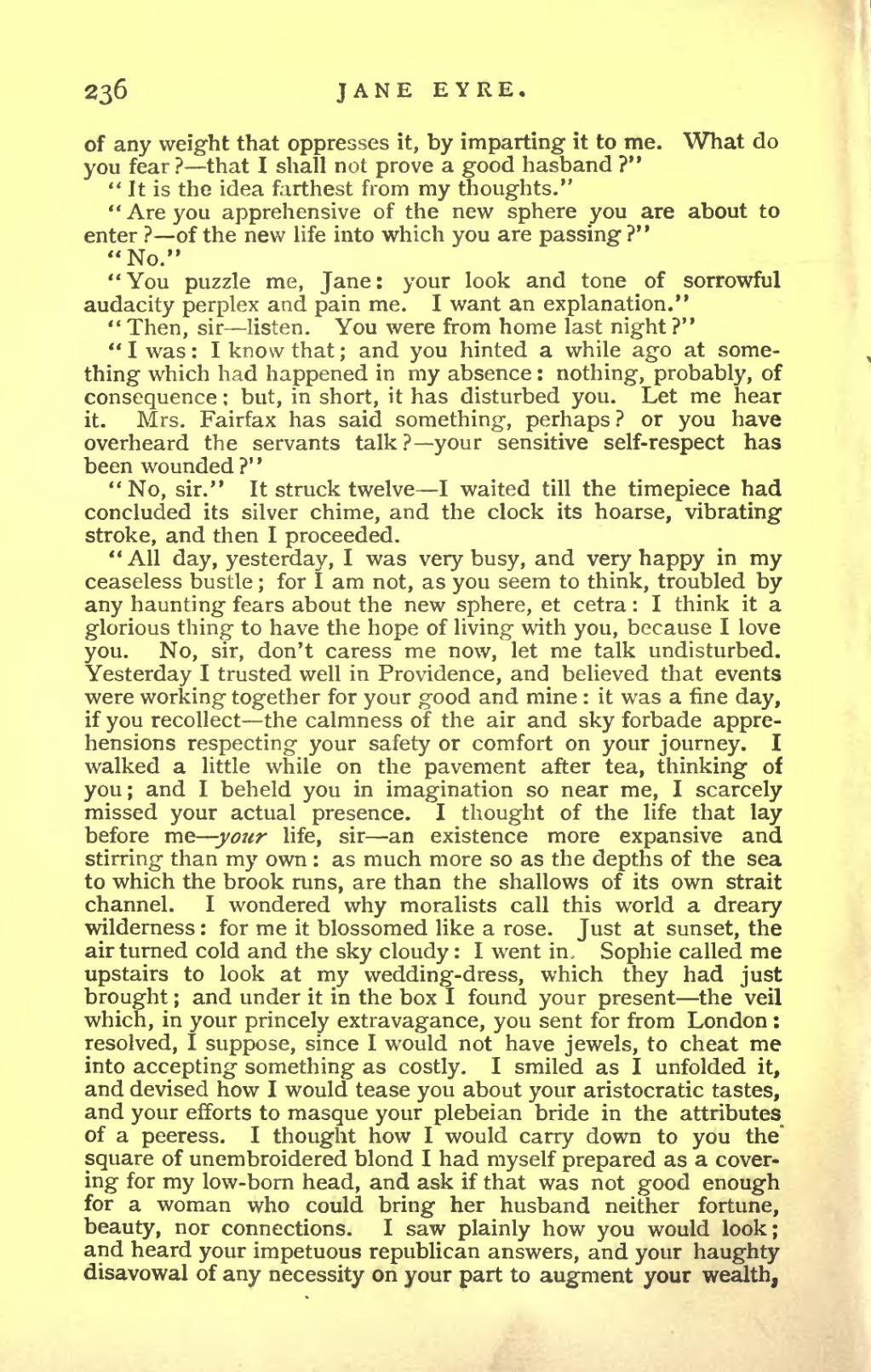of any weight that oppresses it, by imparting it to me. What do you fear?—that I shall not prove a good husband?"
"It is the idea farthest from my thoughts."
"Are you apprehensive of the new sphere you are about to enter?—of the new life into which you are passing?"
"No."
"You puzzle me, Jane: your look and tone of sorrowful audacity perplex and pain me. I want an explanation."
"Then, sir, listen. You were from home last night?"
"I was: I know that; and you hinted a while ago at something which had happened in my absence: nothing, probably, of consequence; but, in short, it has disturbed you. Let me hear it. Mrs. Fairfax has said something, perhaps? or you have overheard the servants talk?—your sensitive self-respect has been wounded?"
"No, sir." It struck twelve—I waited till the time-piece had concluded its silver chime, and the clock its hoarse, vibrating stroke, and then I proceeded.
"All day yesterday I was very busy, and very happy in my ceaseless bustle; for I am not, as you seem to think, troubled by any haunting fears about the new sphere, et cetera: I think it a glorious thing to have the hope of living with you, because I love you. No, sir, don't caress me now—let me talk undisturbed. Yesterday I trusted well in Providence, and believed that events were working together for your good and mine: it was a fine day, if you recollect—the calmness of the air and sky forbade apprehensions respecting your safety or comfort on your journey. I walked a little while on the pavement after tea, thinking of you; and I beheld you in imagination so near me, I scarcely missed your actual presence. I thought of the life that lay before me—your life, sir—an existence more expansive and stirring than my own: as much more so as the depths of the sea to which the brook runs are than the shallows of its own strait channel. I wondered why moralists call this world a dreary wilderness: for me it blossomed like a rose. Just at sunset, the air turned cold and the sky cloudy: I went in, Sophie called me upstairs to look at my wedding-dress, which they had just brought; and under it in the box I found your present—the veil which, in your princely extravagance, you sent for from London: resolved, I suppose, since I would not have jewels, to cheat me into accepting something as costly. I smiled as I unfolded it, and devised how I would tease you about your aristocratic tastes, and your efforts to masque your plebeian bride in the attributes of a peeress. I thought how I would carry down to you the square of unembroidered blond I had myself prepared as a covering for my low-born head, and ask if that was not good enough for a woman who could bring her husband neither fortune, beauty, nor connections. I saw plainly how you would look; and heard your impetuous republican answers, and your haughty disavowal of any necessity on your part to augment your wealth,
